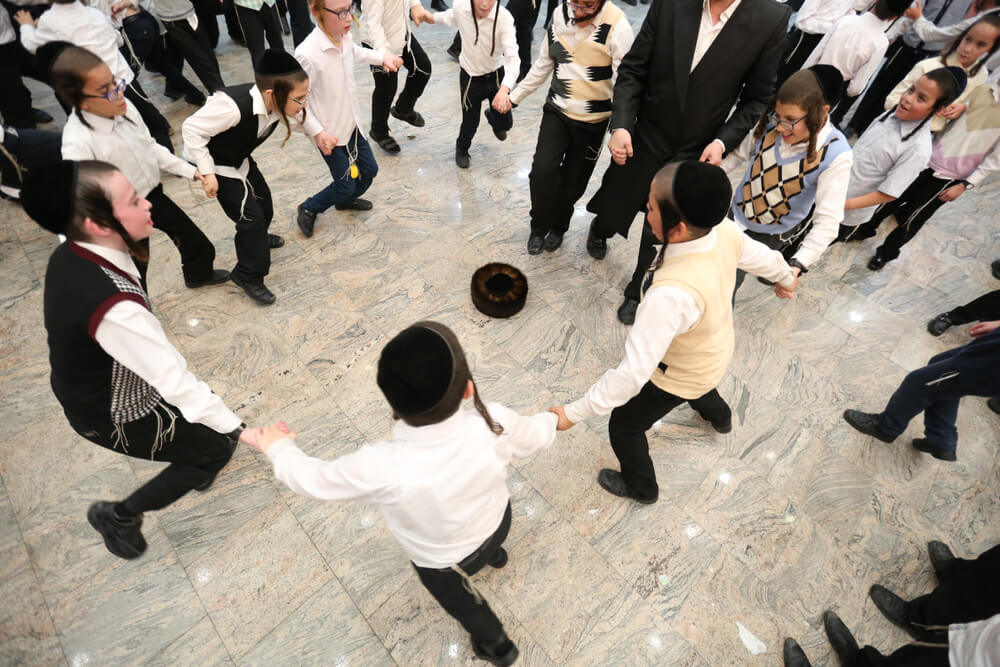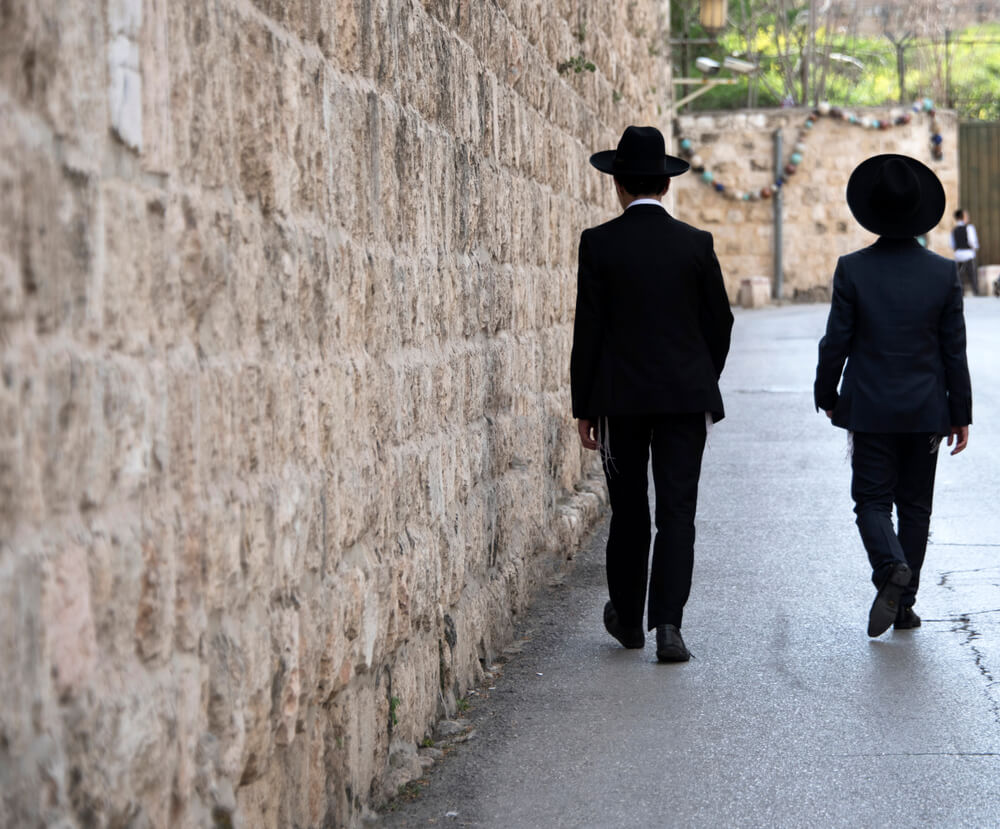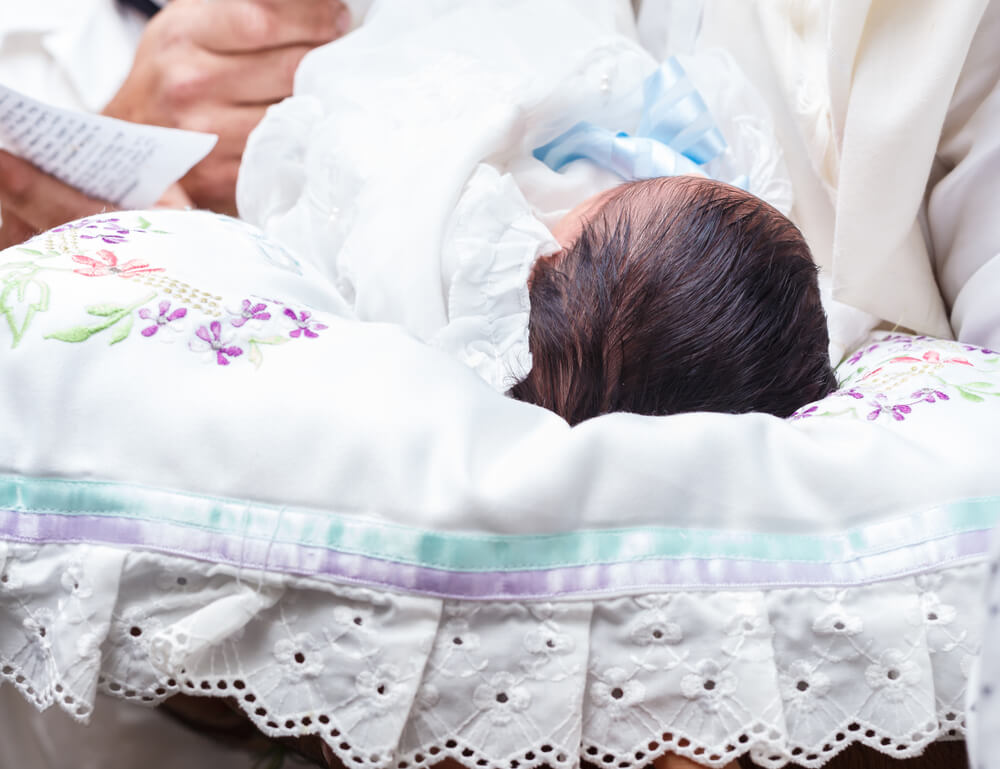What Is a Bris
A Bris, otherwise known as brit milah, is a Jewish Religious Circumcision ceremony that takes place after a baby boy is born. Maybe you have recently welcomed a newborn into the family and are unfamiliar with the question, “what is a bris.” Possibly, you even took to google and searched, “what is a bris” or “when is a bris.” Perhaps you ended up here and discovered this useful source. Regardless, we are here at the office of Dr. Krinsky to tell you everything you may need to know about an upcoming bris or brit milah.

When Is a Bris
If you’re wondering “when is a bris” or “when does a bris occur,” brit milah traditionally occurs on the baby’s eighth day of life. The date of a bris must still be eight days after birth, even if it would fall on a Jewish holiday or Shabbat. The only time the ceremony would not occur in this time frame would be if medical problems arose with the child. In the case of rescheduling, we wait until the baby is in proper health and proceed to schedule– this time, not on Jewish holidays or Shabbat since we have more flexibility.
Where to Have the Ceremony
In a traditional sense, Jews tend to have the brit milah during the morning service at their synagogue. Oftentimes, families prefer to have the celebration take place in the comfort of their own homes. Maybe at the parent’s or grandparents’ home is a common choice. In conclusion, there are no rules as to where the bris must take place. Location is entirely a preference and up to the family.
Who Performs Brit Milah
The ritual is performed by a mohel, pronounced as it would rhyme with coil or boil. If the event concerns someone who practices Orthodox Judaism, the mohel must be male because they do not permit women to serve in the role. However, depending on the family or religious preference, a man or woman can be the mohel and execute the circumcision. Sometimes you can find a full-time mohel, or often they also work as a physician, nurse-midwife, rabbi, or cantor. The mohel you choose must be trained in surgical hygiene and qualified in the Jewish laws surrounding circumcision.
What Specifically Occurs at the Celebration
During this happy time, families are thrilled to immerse their newborns in the Jewish faith. At the start of the ceremony, a godmother, godfather, or another important figure in the newborn’s life will enter the room holding him. Next, they will hand off the baby to the person who holds him during circumcision, otherwise known as the sandek. Traditionally, a grandparent will carry the role of the sandek. However, this tradition can vary from family. Then, before the circumcision begins, the mohel will recite a blessing saying,
“Blessed art Thou, O Lord our God, King of the universe, who hast sanctified us with Thy commandments, and hast given us the command concerning circumcision.”
Next, the mohel will proceed with the circumcision. During this, the father or both of the newborn’s parents recite,
“Blessed art Thou, O Lord our God, King of the universe, who hast sanctified us with Thy commandments, and hast commanded us to make our sons enter the covenant of Abraham our father.”
Then, everyone who is present at the bris will reply to the blessing. All of the guests in attendance will say,
“Even as this child has entered into the covenant, so may he enter into the Torah, the nuptial canopy, and into good deeds.”
Some families will choose to have the blessings said in Hebrew and continue the ceremony accordingly. The mohel completes the ceremony by blessing a cup of wine with a prayer for the baby boy. Next, the mohel will announce the baby’s Hebrew name and place a few drops of wine into the child’s mouth. Then, the mohel will offer the wine to the father to drink. Traditionally, mothers would not attend the bris, but now women frequently wish to join. So, if the mother wishes to take part, the father would pass the rest of the wine to his wife.
Now, the basis of brit milah is complete. Families often wish to include other readings, prayers, or blessings, extending the ceremony. Sometimes, the parents will want to speak about the origin of their child’s Hebrew name. They may discuss why they chose a particular name, etc. Families often plan a festive meal or party proceeding the bris to celebrate their baby boy.
There is another traditional aspect to the ceremony that some ultra-Orthodox communities practice. Metzitzah b’peh is when the mohel orally cleans the circumcision cut. The practice is linked to the transmission of herpes or other diseases. So, including metzitzah b’peh is not very common nowadays. However, some mohels will use gauze or a sterilized tube to perform the oral cleansing suction. Regardless, some mohels continue to perform metzitzah b’peh with oral suction, depending on the family’s preferences.
What to Wear to a Bris

If you’re wondering what to wear to a bris, don’t overthink it. What to wear to a bris is entirely up to you and your family. Although, if the ceremony occurs in a facility with a dress code, you should follow that. If you are planning a celebration, considering what to wear to a bris is a common wonder. Also, you should consider the child’s attire as well.
You want your baby to wear something easy for the mohel to remove. Typically, you’ll want to dress your child in something that can just be removed from the bottom but stay on the top. You could even repurpose a beautiful christening gown if you’re wondering what to wear to a bris. If you still are not satisfied with your options, clothing lines are made specifically for the celebration.
What is Simchat Bat?
Are you wondering if Jewish girls receive a celebration of life as male babies do? Obviously, female babies do not have a circumcision ceremony. However, there is a female equivalent to the event. Simchat bat is the female baby’s celebration of life. During simchat bat, there is a celebration and special Hebrew naming of the baby girl. The contemporary simchat bat ceremony was put into place by Jewish feminism. Although, through the years of Jewish history, families have celebrated the arrival of a baby girl with traditional ceremonies at the synagogue and Hebrew naming ceremonies.
To Conclude
The celebration will be a beautiful time to welcome and immerse your child into the Jewish culture. If you’re looking for a religious circumcision mohel in South Florida, Dr. Krinsky is an excellent choice. Our office is thrilled to help you connect your newborn to their Jewish heritage with safety, care, and joy. Call us today with any questions you have.


